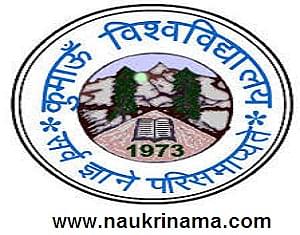Introduction about Ph. D in Civil Eng
Ph.D. in Civil Engineering from the best university
is a doctoral-level
academic program designed to prepare students for advanced research, teaching,
and leadership roles in the field of civil engineering. Civil engineering is a
broad discipline that encompasses the planning, design, construction, and maintenance
of infrastructure and built environments, including buildings, bridges, roads,
dams, airports, water supply systems, and environmental systems. A Ph.D. in
Civil Engineering offers students the opportunity to engage in cutting-edge
research, tackle complex engineering challenges, and make significant
contributions to the advancement of knowledge and innovation in civil
engineering.
Here's an
introduction to a Ph.D. in Civil Engineering program:
Advanced Study of
Civil Engineering Principles:
Ph.D. programs in Civil Engineering offer advanced coursework in fundamental
principles, theories, and methodologies of civil engineering. Students deepen
their understanding of key areas such as structural engineering, geotechnical
engineering, transportation engineering, environmental engineering, water
resources engineering, construction engineering, and infrastructure systems.
Research
Methodologies and Experimental Techniques: Ph.D. students receive rigorous training in research methodologies and
experimental techniques used in civil engineering research. They learn
quantitative and qualitative research methods, experimental design, data
collection, analysis, interpretation, and presentation. They gain proficiency
in a wide range of laboratory and field techniques, computational modeling,
simulation methods, and data analytics tools.
Specialization and
Concentrations: Ph.D.
programs in Civil Engineering allow students to specialize in specific areas of
interest within the field. Common areas of specialization may include:
Structural
Engineering: Study of the design, analysis, and behavior of structures such as
buildings, bridges, and towers.
Geotechnical
Engineering: Investigation of soil and rock mechanics, foundation design, slope
stability, and underground construction.
Transportation
Engineering: Examination of transportation systems, traffic flow, pavement
design, and sustainable transportation solutions.
Environmental
Engineering: Focus on water and wastewater treatment, air quality, solid waste
management, and environmental sustainability.
Water Resources
Engineering: Analysis of hydrological processes, water distribution systems,
flood management, and watershed management.
Construction
Engineering and Management: Management of construction projects, project
planning, scheduling, cost estimation, and construction operations.
Dissertation
Research and Writing: A
central component of Ph.D. programs in Civil Engineering is the completion of a
doctoral dissertation. The dissertation is an original research project that
contributes new knowledge to the field of civil engineering. Students work
closely with faculty advisors or dissertation committees to develop research
questions, design methodologies, conduct experiments or simulations, analyze
data, and disseminate results through scholarly publications and presentations.
Teaching and
Professional Development:
Ph.D. students in Civil Engineering may have opportunities to gain teaching
experience and professional development. They may serve as teaching assistants,
lead discussions, design course materials, and deliver lectures in
undergraduate or graduate civil engineering courses. They may also participate
in workshops, seminars, and conferences to enhance their communication skills,
presentation skills, research ethics, and knowledge of emerging trends and
technologies in civil engineering.
Interdisciplinary
Collaboration and Engagement:
Civil engineering is an interdisciplinary field that intersects with other
disciplines such as environmental science, architecture, urban planning, and
construction management. Ph.D. students in Civil Engineering have opportunities
to collaborate with researchers from other disciplines, participate in
interdisciplinary research projects, and contribute to interdisciplinary
initiatives aimed at addressing complex societal challenges and advancing
sustainable development goals.
Career
Opportunities: Graduates of
Ph.D. programs in Civil Engineering pursue diverse career paths in academia,
research institutions, government agencies, consulting firms, construction
companies, and non-profit organizations. They work as researchers, faculty
members, research scientists, engineers, project managers, consultants, and
policymakers, contributing to the design, construction, and management of
infrastructure systems and built environments around the world.
Overall, a Ph.D. in
Civil Engineering is a challenging and rewarding program that prepares
graduates for leadership roles in academia, research, industry, and government.
It offers opportunities for advanced study, specialized training,
interdisciplinary collaboration, and professional development, enabling
graduates to address pressing engineering challenges, drive innovation, and
shape the future of civil engineering practice and education.
What is admission process for Ph. D in Civil
Engineering?
The admission process 2024 Ph.D. in Civil Engineering program can vary depending
on the institution offering the program and its specific requirements. However,
here is a general overview of the typical admission process for Ph.D. programs
in Civil Engineering:
Research and
Identify Programs: Research
and identify universities, colleges, or institutions that offer Ph.D. programs
in Civil Engineering. Consider factors such as faculty expertise, research
opportunities, program curriculum, facilities, location, and overall fit with
your academic and career goals.
Check Admission
Requirements: Review the
admission requirements for each Ph.D. in Civil Engineering program you are
interested in applying to. Admission requirements may vary but commonly
include:
A master's or
bachelor's degree in civil engineering or a related field from an accredited
institution. Some programs may prefer applicants with a master's degree, while
others may accept applicants with a bachelor's degree if they have relevant
research experience or coursework in civil engineering.
Minimum GPA
requirements for previous academic coursework. The minimum GPA requirement may
vary by program but is typically around 3.0 on a 4.0 scale.
Graduate Record
Examination (GRE) scores. Some Ph.D. programs in Civil Engineering may require
applicants to submit scores from the GRE General Test, which includes sections
on verbal reasoning, quantitative reasoning, and analytical writing. However,
this requirement may be waived or optional in some cases.
Letters of
recommendation from academic or professional references who can speak to the
applicant's academic abilities, research experience, and potential for success
in a Ph.D. program in Civil Engineering. The number of letters required may
vary by program, but it is commonly around three letters.
Statement of
purpose or personal statement outlining the applicant's academic and research
interests, career goals, and reasons for pursuing a Ph.D. in Civil Engineering.
This statement provides an opportunity for applicants to demonstrate their
motivation, passion, and fit for the program.
Resume or
curriculum vitae (CV) detailing the applicant's academic background, research
experience, work experience, publications, presentations, and relevant skills.
Writing samples or
research papers demonstrating the applicant's research abilities and interests
in civil engineering-related topics. These samples provide evidence of the
applicant's research experience, writing skills, and potential for conducting
original research in the field.
Contact Potential
Advisors: Reach out to
faculty members or potential advisors in the Ph.D. in Civil Engineering
programs you are interested in to discuss your research interests and determine
if there are faculty members willing to mentor you and support your research
goals.
Prepare Application
Materials: Gather all
required application materials, including transcripts, test scores, letters of
recommendation, statement of purpose, resume or CV, writing samples, and any
other documents specified by the program.
Submit Application: Complete and submit the application form
for each Ph.D. in Civil Engineering program you are applying to. Follow the
application instructions provided by each institution, paying attention to
deadlines and submission requirements.
Pay Application
Fees: Pay any application
fees required by the institutions you are applying to. Some programs may offer
fee waivers for qualified applicants, so be sure to inquire about waiver
options if applicable.
Interview (if
required): Some Ph.D.
programs may require applicants to participate in interviews as part of the
selection process. Prepare for interviews by reviewing common interview
questions and highlighting your qualifications, research interests, and goals
related to civil engineering.
Submit Additional
Documentation (if required):
If requested by the program, submit any additional documentation or materials
required for the application process, such as samples of your academic or
research work.
Wait for Admission
Decision: After submitting
your application, wait for the admission decision from each institution.
Admission decisions are typically communicated via email, postal mail, or
through an online application portal.
Acceptance and Enrolment: If you receive an offer of admission,
carefully review the terms and conditions of the offer. If you decide to accept
the offer, follow the instructions provided by the institution to confirm your
acceptance and complete the enrolment process, which may include submitting
enrolment deposits and registering for classes.
It's important to
start the application process early and carefully review the requirements and
deadlines for each Ph.D. in Civil Engineering program you are considering. Be
sure to follow the instructions provided by each institution and reach out to
admissions offices or program coordinators if you have any questions or need
clarification on specific requirements. Additionally, establishing connections
with potential advisors and faculty members can strengthen your application and
increase your chances of admission to Ph.D. programs in Civil Engineering.
What is eligibility for Ph. D in Civil Engineering?
The eligibility criteria for Ph.D. in Civil Engineering
program can vary depending on the institution offering the program and
its specific requirements. However, here are some common eligibility criteria
that are typically required for admission to Ph.D. programs in Civil
Engineering:
Educational
Background:
A master's or
bachelor's degree in civil engineering or a closely related field from an
accredited institution is usually required for admission to Ph.D. programs in
Civil Engineering. Some programs may accept applicants with a bachelor's degree
if they have relevant research experience or coursework in civil engineering.
The degree should
demonstrate a strong foundation in fundamental principles of civil engineering,
including structural analysis, mechanics, materials, geotechnical engineering,
transportation engineering, environmental engineering, and construction management.
Minimum GPA:
Applicants are
typically required to have a minimum undergraduate or graduate GPA to be
considered for admission to Ph.D. programs in Civil Engineering. The minimum
GPA requirement may vary by program, but it is typically around 3.0 on a 4.0
scale.
Graduate Record
Examination (GRE) Scores:
Some Ph.D. programs
in Civil Engineering may require applicants to submit scores from the Graduate
Record Examination (GRE), which includes sections on verbal reasoning,
quantitative reasoning, and analytical writing. However, this requirement may
be waived or optional in some cases. Applicants should check the specific
requirements of each program they are interested in applying to determine
whether GRE scores are required and what minimum score thresholds, if any,
apply.
Letters of
Recommendation:
Applicants are
usually required to submit letters of recommendation from academic or
professional references who can speak to the applicant's academic abilities,
research experience, and potential for success in a Ph.D. program in Civil
Engineering. The number of letters required may vary by program, but it is
commonly around three letters.
Statement of
Purpose:
Applicants are
typically required to submit a statement of purpose or personal statement
outlining their academic and research interests, career goals, and reasons for
pursuing a Ph.D. in Civil Engineering. This statement provides an opportunity
for applicants to demonstrate their motivation, passion, and fit for the
program.
Resume or
Curriculum Vitae (CV):
Applicants are
often required to submit a resume or curriculum vitae (CV) detailing their
academic background, research experience, work experience, publications,
presentations, and relevant skills. This document provides a comprehensive
overview of the applicant's qualifications and accomplishments.
Writing Samples or
Research Papers:
Some Ph.D. programs
in Civil Engineering may require applicants to submit writing samples or
research papers demonstrating their research abilities and interests in civil
engineering-related topics. These samples provide evidence of the applicant's
research experience, writing skills, and potential for conducting original
research in the field.
It's important to
note that the specific eligibility criteria for Ph.D. programs in Civil
Engineering may vary from one institution to another, so it's essential to
carefully review the admission requirements of each program you are interested
in applying to. Additionally, meeting the minimum eligibility criteria does not
guarantee admission to a Ph.D. program, as admission decisions are based on a
holistic review of the applicant's qualifications, accomplishments, research
interests, and fit with the program.
What is syllabus of Ph. D in Civil Engineering?
The syllabus for Ph.D. in Civil Engineering from best college program can vary significantly
depending on the specific focus areas, research interests, and faculty
expertise of the institution offering the program. However, here is a general
overview of the typical components of a Ph.D. in Civil Engineering syllabus:
Core Courses in
Civil Engineering:
Advanced topics in
structural engineering: Advanced concepts in structural analysis, design
optimization, finite element analysis, structural dynamics, earthquake
engineering, and advanced materials in structural engineering.
Advanced topics in
geotechnical engineering: Advanced soil mechanics, foundation engineering,
soil-structure interaction, geotechnical earthquake engineering, underground
construction, and slope stability analysis.
Advanced topics in
transportation engineering: Advanced transportation planning, traffic flow
theory, transportation modeling, intelligent transportation systems, public
transportation, and sustainable transportation solutions.
Advanced topics in
environmental engineering: Advanced water and wastewater treatment,
environmental impact assessment, air pollution control, solid waste management,
environmental sustainability, and environmental policy and regulation.
Advanced topics in
construction engineering and management: Advanced project management,
construction planning and scheduling, risk management, cost estimation,
construction law, and sustainable construction practices.
Research
Methodologies and Experimental Techniques:
Research design and
methodology: Training in research methodologies and experimental techniques
used in civil engineering research, including quantitative and qualitative
approaches, experimental design, data collection, analysis, interpretation, and
presentation.
Laboratory
techniques: Hands-on experience with a variety of laboratory and field
techniques commonly used in civil engineering research, including material
testing, geotechnical testing, structural testing, transportation data
collection, environmental monitoring, and construction monitoring.
Computational
modeling and simulation: Application of computational tools and simulation
methods for modeling and analyzing civil engineering systems, structures, and
processes. Topics may include finite element analysis, computational fluid
dynamics, numerical methods, and optimization techniques.
Specialization
Courses:
Elective courses:
Specialized courses in specific areas of interest within civil engineering,
tailored to the student's research interests, career goals, and chosen area of
specialization. Topics may include advanced topics in structural dynamics,
geotechnical earthquake engineering, transportation network analysis,
environmental risk assessment, construction project finance, and infrastructure
resilience.
Directed readings
or independent study: Individualized study under the supervision of a faculty
advisor, focusing on advanced topics, specialized research methods, or specific
research questions relevant to the student's dissertation or research interests.
Seminar Series and
Journal Clubs:
Seminar series:
Attendance and participation in seminars, workshops, and colloquia featuring
presentations by faculty members, visiting scholars, and fellow students on
current research topics, breakthroughs, and controversies in civil engineering.
Journal clubs:
Participation in journal clubs focused on critically evaluating and discussing
recent research articles and publications in civil engineering-related
journals. Students present and lead discussions on assigned papers, fostering
critical thinking, scientific communication, and collaboration.
Dissertation
Research and Writing:
Dissertation
proposal development: Development of a research proposal outlining the research
questions, objectives, theoretical framework, research design, methods, data
collection plan, and significance of the doctoral dissertation. Supervised by a
faculty advisor or dissertation committee.
Dissertation
research: Conducting original research, data collection, analysis,
interpretation, and writing of the doctoral dissertation. The dissertation
should make a significant contribution to the field of civil engineering and
demonstrate the student's ability to conduct independent research, engage with
existing literature, and advance knowledge in their chosen area of study.
Teaching and
Professional Development:
Teaching practicum:
Teaching assistantship or supervised teaching experiences in undergraduate or
graduate civil engineering courses. Students gain experience in course design,
lesson planning, classroom management, assessment strategies, and student engagement.
Professional
development workshops: Participation in workshops, seminars, and conferences
focused on scientific communication, presentation skills, grant writing,
research ethics, and career development. Students develop skills and strategies
for successful academic and research careers in civil engineering.












